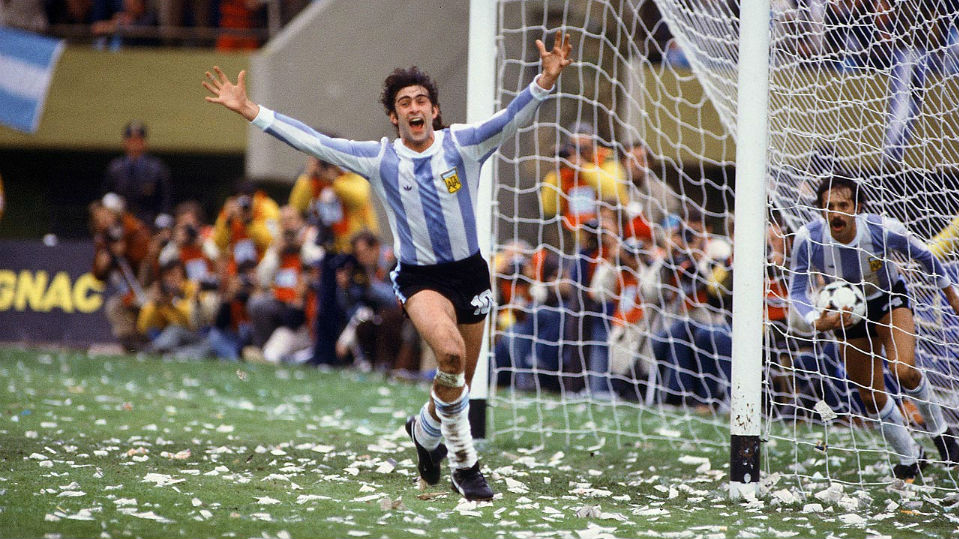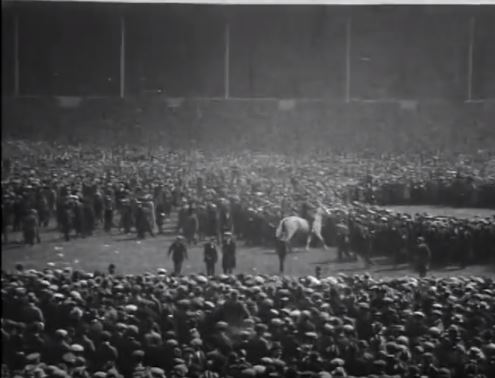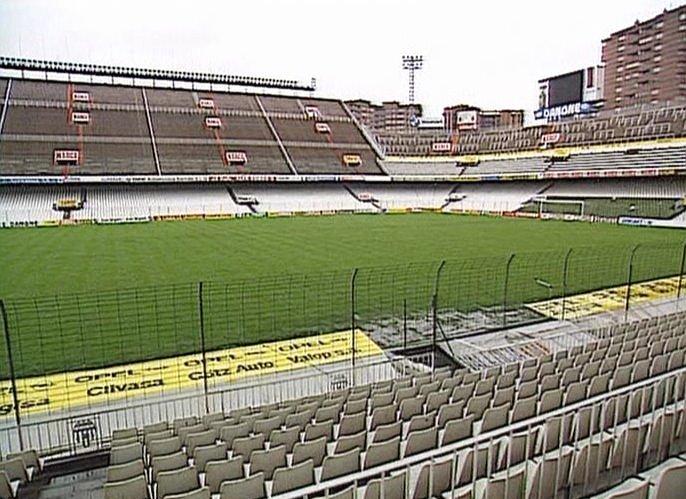Last update August 2, 2020 by Javier Argudo
In football there are things that change slowly and almost imperceptibly. Suddenly, of the blue, poles soccer goals ceased to have that iron arch at the back as many times the ball hit him and came out again creating some confusion as to whether or not he had entered. Also they disappeared the basis of said posts in black but why were painted this color?
EVOLUTION soccer goals
There are two versions and interestingly both can be true. Todos hemos escuchado la típica expresión de algunos locutores de radio y televisión en la retransmisión de un partido refiriéndose a los postes de las porterías de fútbol como “madera”. Precisely why, because at first and for many years this was the material they were made the goals it was necessary that the base was put tar to prevent such wood rot due to humidity lawn, like is logic, It was necessary to water regularly.
We noted this type of bases color black in some games late 60 and the 70. curiously, when soccer goals They ceased to be wood, many teams remained the basis of their posts black color even dared to paint some other colors like blue or red as networks based outside the clothing of the stadium club owner.
ARGENTINA WORLD 1978
But nevertheless, There is another theory that Professor David Forrest, contributor The Guardian, He says after a thorough and almost obsessive investigation conducted after discovering those black marks on the World Championship in Argentina in 1978. We must not forget that at that time the South American country was under the rule of dictator Videla. During this dictatorship thousands were missing and many who felt the need to honor them and remember them.
TRIBUTE TO VICTIMS Videla
according to account Forrest, caregivers of Argentine stadiums that world Cup They looked for ways to pay this tribute. At first they were raised that players will wear black armbands but the idea was rejected because it would not be accepted by the rulers of the moment. That was how they came to the goalposts, which they would be seen by millions of people around the world, lucieran these bracelets.
One of them, Ezequiel Valentini, He was interviewed by Forrest and so he recognized. further, He confessed that when they were asked about the reason for those black marks on poles replied that it was simply tradition, benefiting from the null footballing culture related to organizing members Videla regime.
Esta ‘tradición’ se conservó en España hasta hace relativamente poco tiempo. Mythical stadiums like the Atocha came to have black colored poles but also blue like networks. He riazor himself held them until years 90, in fact, the famous penalty missed by Djukic against Valencia and that was the Galician side lost the league, It was released on a goal with these black marks on its base.




